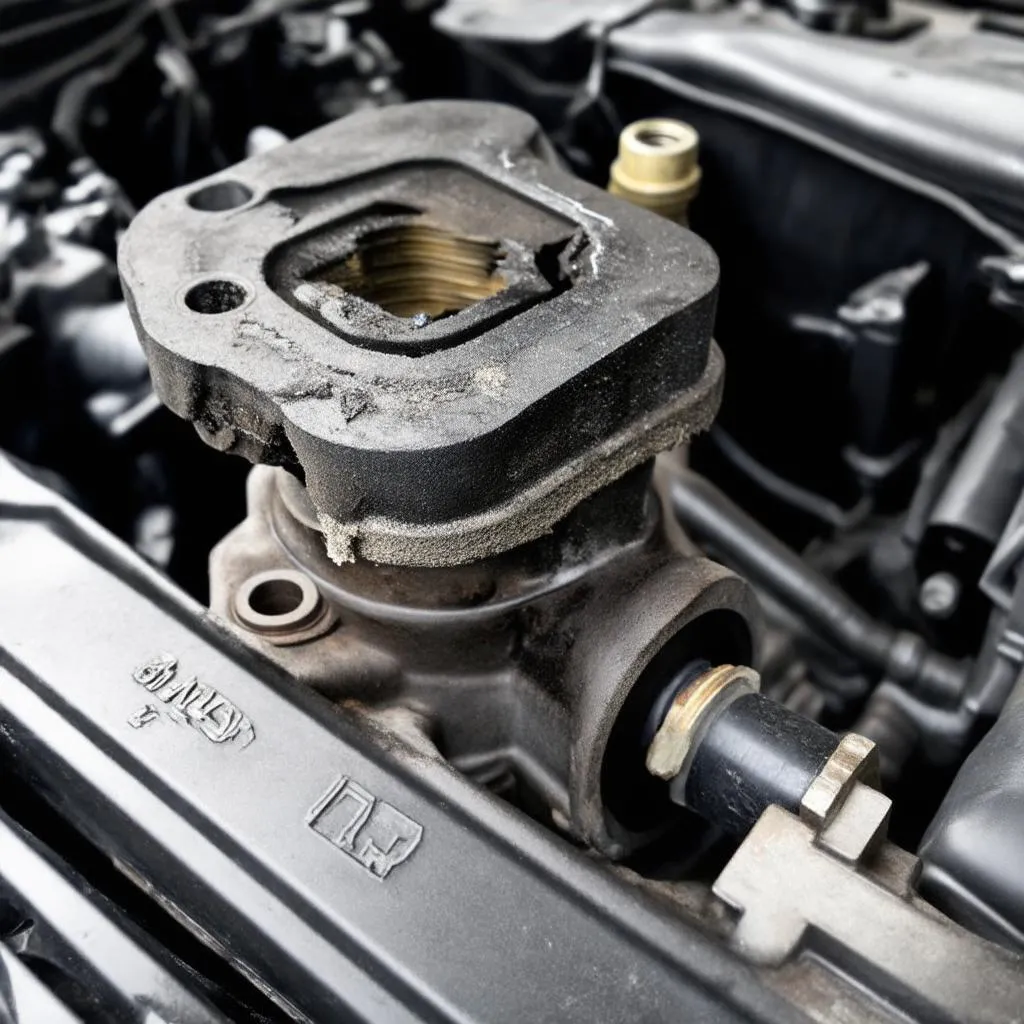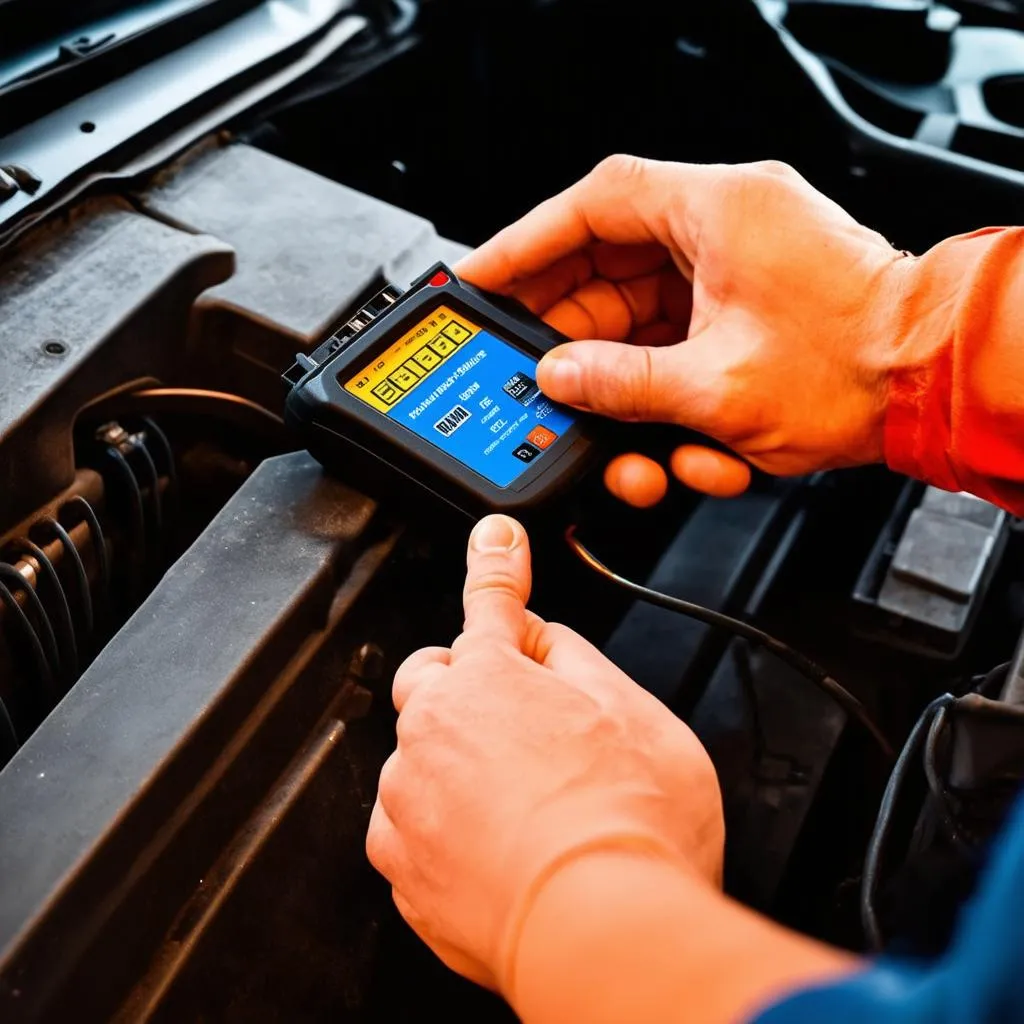“My whole car shakes when I’m idling at a red light. It feels like a giant is shaking my Ford Fiesta!” exclaimed John to a mechanic at a bustling repair shop in downtown Chicago. This, unfortunately, is a story we hear all too often. Engine shaking, whether it’s a subtle tremor or a violent vibration, can be alarming and signal underlying issues with your car.
Understanding Engine Shaking
Before we dive into the causes and solutions, let’s clarify what we mean by “engine shaking.” It’s more than just your car vibrating a little on a bumpy road. It’s a persistent shaking, often felt through the steering wheel, floorboard, or even the entire car.
From a mechanic’s perspective, engine shaking is often a symptom of a problem, not the problem itself. “Think of it as your car’s way of telling you something is wrong,” says renowned automotive expert Dr. Emily Carter in her book “The Talking Car.” It’s like a cough; you need to figure out the underlying cause.
Economically speaking, ignoring engine shaking can lead to bigger, more expensive problems down the road. A small issue like a worn spark plug is a relatively cheap fix. However, if ignored, it can snowball into a damaged catalytic converter, a hefty repair bill that could have you digging deep into your savings.
What Makes My Engine Shake?
Let’s break down the common culprits behind that unnerving engine shake:
1. Spark Plugs: The Engine’s Igniters
Spark plugs ignite the fuel-air mixture in your engine’s cylinders. Worn-out or faulty spark plugs can cause misfires, leading to uneven power delivery and, you guessed it, engine shaking.
2. Fuel System Issues: The Engine’s Diet
Just like we need a balanced diet, your engine needs the right fuel-air mixture. A clogged fuel filter, malfunctioning fuel injector, or a vacuum leak can disrupt this balance, causing your engine to sputter and shake.
3. Engine Mounts: The Engine’s Cushions
Your engine sits on mounts that absorb vibrations. Worn or damaged engine mounts can’t do their job properly, transferring excessive vibrations to the rest of the car, especially noticeable when idling or accelerating.
4. Internal Engine Problems: The Serious Stuff
Sometimes, engine shaking can be a sign of more serious internal engine problems like worn piston rings, a failing timing belt, or a damaged harmonic balancer. These issues require immediate attention from a qualified mechanic.
 Worn Engine Mount
Worn Engine Mount
My Engine is Shaking: What Should I Do?
If your car is playing the shaking game, don’t panic! Here’s what you should do:
- Take Note: Pay attention to when the shaking occurs (idle, acceleration, specific speeds) and its intensity. This information will be helpful for your mechanic.
- Check Engine Light: Is it on? If so, it’s time to get your car diagnosed at a reputable mechanic shop.
- Regular Maintenance: Just like you visit the doctor for checkups, regular car maintenance can prevent many engine issues, including shaking.
 Car Diagnostics
Car Diagnostics
Related Questions:
- Can bad gas cause engine shaking? Yes, contaminated or low-quality fuel can disrupt combustion and lead to engine shaking.
- Is it safe to drive with engine shaking? It depends on the severity. Mild shaking might be tolerable for a short distance, but persistent or severe shaking warrants immediate attention.
Need More Help?
Engine shaking is a complex issue with various potential causes. If you’re experiencing this problem, don’t hesitate to contact us on Whatsapp: +84767531508. Our team of expert mechanics is available 24/7 to assist you with diagnosing and resolving the issue. You can also check out our other articles for more information about car troubleshooting and maintenance:
Remember, a smooth-running engine is a happy engine (and a happy driver!).